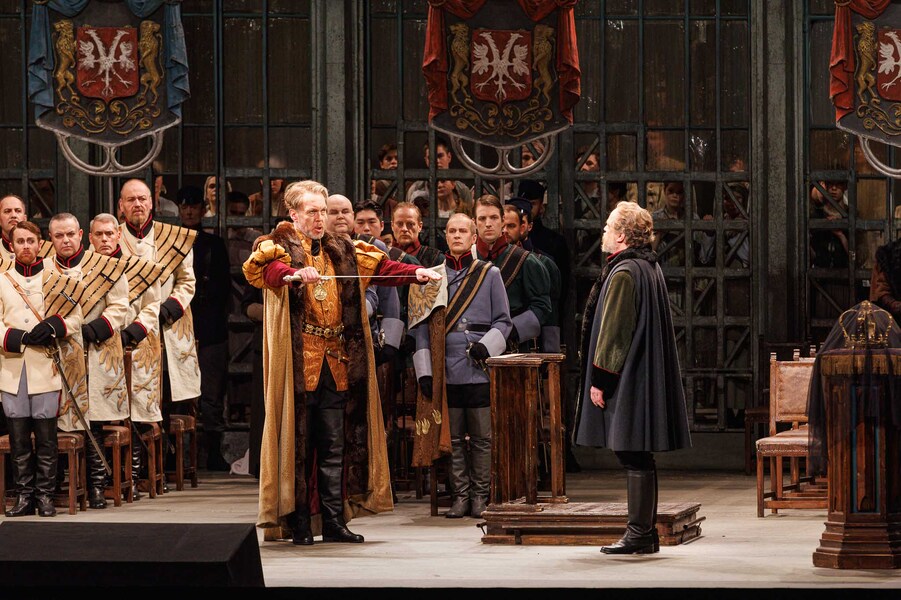Romantic opera in three acts
Performed in German with German and English surtitles
Premiere
21. January 1983,
No further performances in the current season.
Explore
Stücktrailer
Lohengrin
Richard Wagner’s Lohengrin, which premiered in Weimar in 1850, is closely associated with Dresden: Inspired by the charming landscape around the nearby village of Graupa, Wagner began the opera in 1846 when employed as Kapellmeister to the royal court, completing the work in the Saxon capital in 1849. Since its first performance in Dresden ten years later, the work has been heard over 850 times at the Semperoper. This production from 1983 is a true classic, thrilling audiences year after year. Retaining the work’s roots in both the 19th century and the Middle Ages, director Christine Mielitz tells the story of Elsa, unlawfully accused of murder and at the mercy of her adversaries in the duchy of Brabant, who is rescued by the mysterious Swan Knight. This is a tragic tale of a woman fighting for recognition but also for knowledge. At the end comes the bitter realization that her justifiable wish to know the name of the person to whom she owes her happiness will result in his downfall.

Gallery








